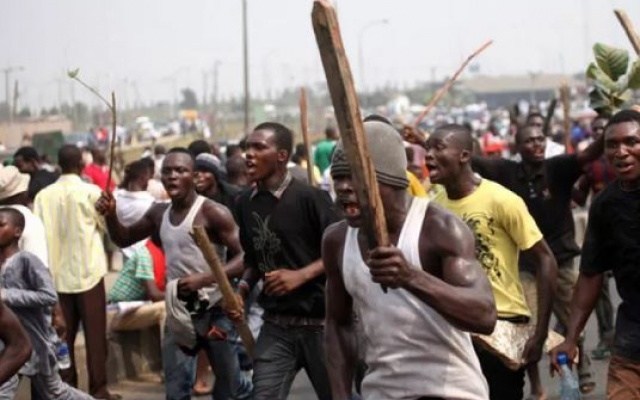The Attorney-General, Gloria Akuffo has presented a bill to Parliament to specifically deal with political vigilantism in Ghana.
Addressing the house on Thursday, April 11, Gloria Akuffo appealed to MPs to consider the bill under a certificate of urgency.
Highlights of the Bill
The bill, Vigilantism and Related Offences ACT, 2019, is aimed at specifically dealing with the menace of political vigilantism in Ghana and other forms of vigilantism including land guards.
The bill in Clause 1 defines what political vigilantism is, which also includes the growing activities of land guards in the country. This Clause explains the various ways a person can be said to have engaged in political vigilantism.
"(1) This Act applies to
(a) a person who participates in the activities of a vigilante group that is associated, related, connected or affiliated to a
(i) political party,
(ii) political party officer, or
(iii) political party member;
(b) a person who acts as a land guard; and
(c) a person who engages in other acts of vigilantism."
Clause 2 of the bill talks about activities that do not form part of the vigilantism offence, individuals who with the consent of their communities play watchdog roles according to the bill do not form part of the offence. The bill will assess the act, whether vigilantism or not, based on the motive and concerns of the public.
"(2) This Act does not apply to
(a) persons, who live within the same neighbourhood or community, and who act in concert with the aim of preventing an offence from being committed within that neighbourhood or community; and
(b) a person, who having witnessed the commission of an offence, acts with the sole aim of preventing the further commission of that offence or any other offence."
The bill when passed into law will require leaders of the various political vigilante groups to within one month write to the Attorney General with the list of its members and officially indicating that the group has been disbanded.
The leader of any of the groups who fail to comply is liable on a summary conviction to a term of imprisonment of not less than five years and not more than fifteen years.
"(2) Despite subsection (1), the leaders of the disbanded political party vigilante groups shall, within one month after the coming into force of this Act, by notice in writing, inform the Minister of the formal disbandment of their political party vigilante groups.
(3) The notice referred to in subsection (2) shall include the date of the formal disbandment and the names of the past and present members of the disbanded political party vigilante group.
(4) The Minister shall, within three months after the coming into force of this Act, publish in the Gazette, a list of the disbanded political party vigilante groups that have complied with subsections (2) and (3).
(5) A leader of a disbanded political party vigilante group who fails to comply with subsections (2) and (3) commits an offence and is liable on summary conviction to a term of imprisonment of not less than five years and not more than fifteen years."
The bill also acknowledged the existence of some political vigilante groups in the country which will be expected to be disbanded after the passage of the bill into law.
The political vigilante groups include Hawks, Invincible Forces, Delta Force, Azorka Boys, Bamba Boys, Kandahar Boys and BoIga Bulldogs.
Base on the bill a person who is found guilty of taking part in a vigilante group activity will spend not less than five years and not more than fifteen years in imprisonment.
"(4) A person who contravenes subsection (3) commits an offence and is liable on summary conviction to a term of imprisonment of not less than five years and not more than fifteen years."
READ ALSO:
Â
Â
Â





